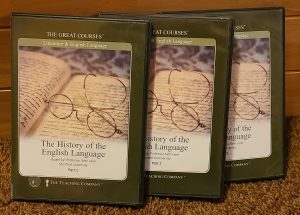
,In this cartoon, which appeared in my newspaper on Sunday as I was starting to think about writing this story, all the jurors are looking at their phones. Is that how it started, this business of shorter and shorter attention spans? The distraction of a smart phone, like a whole computer in your pocket. Or maybe it was Twitter, where people learned to express themselves in 140 characters.
In this cartoon, all the jurors are looking at their phones. Is that how it started, these shorter and shorter attention spans?
 TLDR is an abbreviation that probably started as textspeak. It stands for Too Long, Didn’t Read. When you send someone an article that explains in detail a point you were perhaps trying to make, they might respond TLDR, especially if they are your child. I myself have this reaction to a lot of things I see these days, but I don’t think it’s because my attention span has gotten shorter, I think it’s because people tend to blather on a lot longer than they used to. Does this contradict what I said in the previous paragraph about people limiting themselves to 140 characters? Not really, because it is when they are not on Twitter and have no externally imposed limitations that they don’t feel the need to edit themselves and consequently may make the same point multiple ways. Back in the days when you had to write on paper, with a pen or pencil, people were more economical with what they said. At least that’s my theory. Now you can just type away endlessly, and maybe not even bother to proofread.
TLDR is an abbreviation that probably started as textspeak. It stands for Too Long, Didn’t Read. When you send someone an article that explains in detail a point you were perhaps trying to make, they might respond TLDR, especially if they are your child. I myself have this reaction to a lot of things I see these days, but I don’t think it’s because my attention span has gotten shorter, I think it’s because people tend to blather on a lot longer than they used to. Does this contradict what I said in the previous paragraph about people limiting themselves to 140 characters? Not really, because it is when they are not on Twitter and have no externally imposed limitations that they don’t feel the need to edit themselves and consequently may make the same point multiple ways. Back in the days when you had to write on paper, with a pen or pencil, people were more economical with what they said. At least that’s my theory. Now you can just type away endlessly, and maybe not even bother to proofread.
 When I was young, I could read for hours, it didn’t matter if it was a novel or a history book (preferably about the kings and queens of England) or even the World Book Encyclopedia. I would take down a volume from the shelf and read the whole thing! I can still read for hours, although now the chances are much greater that I will get interrupted. And I do much better with an actual book or magazine than one that is online or on an e-reader. If I’m sitting in front of a computer or tablet, I start thinking maybe I’ll just check facebook, or I’ll check my library account, or I’ll answer an email. The ability to open multiple tabs is just too tempting, and eventually I forget about whatever I’m reading.
When I was young, I could read for hours, it didn’t matter if it was a novel or a history book (preferably about the kings and queens of England) or even the World Book Encyclopedia. I would take down a volume from the shelf and read the whole thing! I can still read for hours, although now the chances are much greater that I will get interrupted. And I do much better with an actual book or magazine than one that is online or on an e-reader. If I’m sitting in front of a computer or tablet, I start thinking maybe I’ll just check facebook, or I’ll check my library account, or I’ll answer an email. The ability to open multiple tabs is just too tempting, and eventually I forget about whatever I’m reading.
The prompt asks whether we listen to lectures or speeches without accompanying power points or video presentations. This morning, as I was beginning to write this story, I was on a Zoom with Larry Bacow, the president of Harvard. It was an interview conducted by an exuberant, smiley young woman, which may have been part of the problem. The questions she asked him were not necessarily the questions I would have liked him to answer. Despite the fact that he is an engaging and articulate speaker, my mind started wandering about ten minutes in. I don’t think the problem was the lack of power points or videos, I think it was just that I was sitting at my computer, and also had my phone, so there were an unlimited number of other sites I could look at while still listening to Larry. Any new “likes” on my latest facebook post? Any moves to make in my Words With Friends games? Any emails or texts that I need to respond to? If I had been sitting in an auditorium watching him in person, I think he would have had my full attention. Maybe even for the entire hour of the event.
 On the other hand, about a dozen years ago my husband and I ordered two courses from The Great Courses catalogue, one on the history of the English language and one called “The Joy of Thinking: The Beauty and Power of Classical Mathematical Ideas.” We started watching the English one first. There were no audio-visual aids whatsoever, it was purely a series of lectures by a Stanford professor. Most of the time, the camera was just on him, standing at a lectern. Occasionally, for variety, the camera would pan over the audience in the classroom. They all seemed attentive. But I just could not stay awake. Maybe watching after dinner was a bad idea, but there was no other feasible time. There were 6 discs, with 6 lectures per disc, each one thirty minutes long. Some nights, if I was still awake at the end of the first lecture we watched, my husband would go on to the next one. I was guaranteed to be asleep before that one was over. We made it through 15 lectures, not even halfway, and then gave up. We still have them though. Maybe we’ll try the Mathematics one at some point, and see if that professor is less soporific. The title is pretty intriguing (which is why we ordered it in the first place). I have to admit that I have been spoiled by watching documentaries on PBS, where they have beautiful videography, lots of different people speaking, and sometimes even little cartoons. Maybe they figured out that it was the only way to keep people’s attention. It certainly would have kept mine better than watching a single professor standing at a lectern.
On the other hand, about a dozen years ago my husband and I ordered two courses from The Great Courses catalogue, one on the history of the English language and one called “The Joy of Thinking: The Beauty and Power of Classical Mathematical Ideas.” We started watching the English one first. There were no audio-visual aids whatsoever, it was purely a series of lectures by a Stanford professor. Most of the time, the camera was just on him, standing at a lectern. Occasionally, for variety, the camera would pan over the audience in the classroom. They all seemed attentive. But I just could not stay awake. Maybe watching after dinner was a bad idea, but there was no other feasible time. There were 6 discs, with 6 lectures per disc, each one thirty minutes long. Some nights, if I was still awake at the end of the first lecture we watched, my husband would go on to the next one. I was guaranteed to be asleep before that one was over. We made it through 15 lectures, not even halfway, and then gave up. We still have them though. Maybe we’ll try the Mathematics one at some point, and see if that professor is less soporific. The title is pretty intriguing (which is why we ordered it in the first place). I have to admit that I have been spoiled by watching documentaries on PBS, where they have beautiful videography, lots of different people speaking, and sometimes even little cartoons. Maybe they figured out that it was the only way to keep people’s attention. It certainly would have kept mine better than watching a single professor standing at a lectern.
This prompt also makes me wonder about the popularity of the RetroFlash feature we introduced in November 2020. Is the desire to write a story in only one hundred words the result of a shorter attention span? I don’t think so, because it can actually be harder and more time-consuming to figure out how to express yourself in exactly one hundred words than it would be to use many more words. However, reading a RetroFlash obviously takes a lot less time. So maybe there are readers with short attention spans who appreciate the shortness of those pieces. If you are still paying attention, you can address that question in the comments. 



I agree with all that you’ve said, Suzy. I also would read an entire volume of the encyclopedia as a kid and loved reading books. Now, with my dry eye, I find that my eyes literally go out of focus if I look too long at the page or screen.
While watching a Zoom presentation, it is tempting to check one’s phone (particularly if you can’t be seen). And also very easy to go down a rabbit hole of inquiry while reading something on the computer. The smart phones definitely lead us into temptations of distraction with games, texting, checking our social media, etc.
Those discs you bought years ago with just the talking heads, while informative, do sound like a good excuse for a nap. Nothing deadlier than a Talking Head expounding on a topic with few or no graphics. But the RetroFlash, though economic, takes a lot of thought to convey it just right in 100 words.
Thanks, Betsy, I knew I could count on you, my Retro sister, to share my experiences. Sorry about your eyes, I keep wondering if there isn’t something that could be done to improve them. My comment about RetroFlash catering to short attention spans was about the readers, not the writers.
A really good analysis of the whole topic, Suzy — and the usual great song title title. (I had bet with myself you might choose “Time Won’t Let Me” by the Outsiders, but lost that one.)
I had forgotten about TLDR l, but it is a good point to raise. It particularly reminds me of what we heard about Trump and how his aides couldn’t get him to read any briefings no matter how brief they were. Very not cool for a POTUS. But you also raise the very good point that some of the problem might not be our short attention spans so much as our greater ability to go on and on and test others’ attention spans. To use another current texting acronym, albeit slightly out of context, there is simply TMI.
And, not surprisingly, I particularly resonated to two parts of your story since I had also addressed them. The first was your discussion of The Great Courses. All I can add there is that I guess my own attention span, short as it may be, is a bit longer than yours, as I find their 30 minute courses, with or without graphics, just about the perfect length.
And I also share your ambivalence about RetroFlashes. Are they a fun addition to Retro or the first step in our path to attention span Hell?
Thanks John. “Time Won’t Let Me” would have been a great choice, if only I had thought of it. I should have you on retainer to supply me with song titles. It would let me turn my limited attention to other things, like actually writing the story!
On The Great Courses, at least the linguistics course that I tried to watch, I don’t think my problem was a short attention span, just a low tolerance for boring lecturers. Or do you think that’s the same thing?
And my point about RetroFlashes is that they cater to READERS with short attention spans, not writers, since it can actually take more time to write a story that is exactly 100 words long.
Thanks, Suzy, but I think I’ll remain an independent consultant — or second guesser — on the song title titles; they’re really your domain.
And I completely buy into your point that content usually dictates attention spans and, as such, boring lecturers cause shorter spans. I think I am just one of the few weirdos who seems to have a constant span.
And good point about readers vs. writers of RetroFlashes. There are all sorts of quotations from famous speakers saying how it takes them so much longer to write a short speech than a long one.
See the Woodrow Wilson quote in my response to Mike Wallace, below. That may have been one you were thinking of.
Exactly!
(That comment took me three hours to compose.)
Reminds me of:
“If I Had More Time, I Would Have Written a Shorter Letter”
https://quoteinvestigator.com/2012/04/28/shorter-letter/
Thanks for this link, Mike, great to learn about all the great minds who expressed that idea. I love Woodrow Wilson’s answer to the question of how long he spent on his speeches: “If it is a ten-minute speech it takes me all of two weeks to prepare it; if it is a half-hour speech it takes me a week; if I can talk as long as I want to it requires no preparation at all. I am ready now.”
You’ve said it perfectly, Suzy, and I echo the others about being able to “blather” on, verbally or in writing, because on our devices there are no physical page limits. I learned, early in business, to “write to layout,” which meant that I had a limited amount of space and had to use it well. I find it’s really hard to maintain focus for long periods of time in front of a screen. It’s good that the Retro writers do both longer pieces and Flashes. The variety helps!
Thanks, Mare. I like the idea of writing to layout. Nowadays, it seems there are no layouts, and thus too much writing is TLDR. I agree that the variety of lengths on Retro is much better for the reader than if they were all the same length, whether long or short.
Thanx for your usual honest and insightful story Suzy, I see distraction is a common happenstance for most of us, and thanks for TLDR, I’ll surely use it along with TMI … but not for my fellow Retro writers!
As for RetroFlash I agree it’s not an easy way out for writers, on the contrary I think it’s challenging and a valuable addition to our toolbox!
#KeepRetroFlash!
Thanks, Dana, glad you thought it was insightful and not just blather! 🙂 Love the hashtag!
I agree with #KeepRetroFlash. And thanks for the warning on the Great Courses. I also find that layout helps a LOT with communication—most people won’t ferret out the information hidden in a paragraph. Attention problem, or just general information overload? Certainly scrolling through e-mails, I appreciate a good subject line to help decide if I will look further, and if people forward a document I have to open to read—not happening.
Thanks, Khati. I see from your comment on Marian’s story that you had to google her reference to TLDR to find out what it meant. If you had read my story first, you would have seen my whole discussion of TLDR and been enlightened that way. I’m pretty sure Marian had read mine before she posted hers, and that’s why she didn’t explain it.
I’m still with you, Suzy, but my reading your story was interrupted by a zoom, an emergency call from my daughter, and a bunch of texts from my granddaughter. So yes, that’s a factor. To answer your question, I don’t think a RetroFlash holds my attention more than a regular story. What happened this morning would have been the same if I were trying to read 100 words. There seem to be more ways for things to intrude these days. Wonder if I will get through the NY Times today?
Good point, Laurie. There are always so many interruptions, even when you are only trying to read 100 words. If you actually did get through the Sunday NY Times, I will be very impressed.
Nice to know I am not alone in my encyclopedia reading habits (although now its usually some random Wikipedia article). I also occasionally will read random pages from a dictionary.
I draw the line at old phone books….